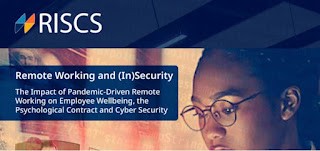One of the most beneficial features of the CDT programme is that it's multi-dimensional. Dr Carlton Shepherd
From the training sessions in the first year, to
the various industrial presentations and visits throughout, I found it
invaluable to be exposed to a wide variety of areas within information
security. Studying alongside peers focussed on a diverse set of
interests---cryptography, systems security, programming language security,
geopolitics and many others---provided an endless source of interesting
discussions and viewpoints that, I believe, wouldn't have been available elsewhere.
Another major benefit of the CDT, in hindsight, is the opportunity and, indeed,
expectation to present one's work regularly, whether it be at the CDT
Showcases, internal student seminars, or external events, such as conferences.
Learning to shape presentations to diverse audiences has been invaluable
following the conclusion of my PhD, where I have been required to present to a
machine-learning expert one week and the Chief Technology Officer (CTO) the
next. Frankly, I found presentations to be nerve-wracking before I arrived at
Royal Holloway, but the experience I gained during the CDT is now paying
dividends.
My background is in Computer Science and, although I started the CDT with a bit of experience in an academic research environment, it took some time to settle on an appropriate research topic. I converged on the broad topic of trusting embedded sensing devices, focussing on hardware-assisted system security measures and, in particular, trusted execution environments (TEEs). During this time, I also worked on a concurrent project in the Smart Card and IoT Security Centre on detecting relay attacks on contactless mobile transactions, e.g. payments, using smartphone sensor data as a proximity detection mechanism. This involved a substantial amount of data analysis and machine learning, which I now use on a daily basis in my job as a Research Scientist at OneSpan, where I currently work on detecting fraud from banking transaction data. In retrospect, this speaks to one of the CDT's major benefits and privileges: the flexibility to explore areas outside of your initial scope of expertise and to attend conferences and other research events for inspiration.
Much of the above stems from the generous financial support that alleviates many of the stresses and obstacles that, I know, can be a real impediment for students on traditional PhD programmes elsewhere. However, it is due largely to my supervisor, Prof. Konstantinos Markantonakis, who was supportive, accommodating and provided advice throughout my time at Royal Holloway. More generally, I found all ISG staff members to be down-to-earth and approachable, in addition to being expertly and highly professional. In short, I would have no qualms in recommending the CDT programme at Royal Holloway to any prospective student who wishes to pursue a research-oriented path in information security. The makeup of the ISG, the student cohorts, the flexibility, as well as the resulting opportunities, are something that, I believe, can't be found anywhere else


Comments
Post a Comment